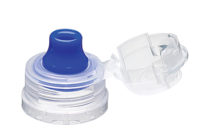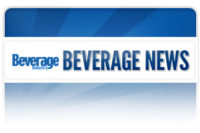![]()
Getting Closure
Hogue Cellars, a Washington-based wine producer, recently announced
the results of a four-year study on bottle closures. What’s interesting about
the study is that the results suggest fruit quality and wine freshness are preserved
by using screw-caps rather than natural or synthetic corks. How did they determine
the closures were more effective? According to reports, every six months during
a 30-month period, a panel of Hogue winemakers and trade professionals tasted
and analyzed a 1999 Hogue Genesis Merlot and a 2000 Hogue Fruit Forward Chardonnay
with a variety of closures. At the study’s conclusion in December, the company
found natural corks showed levels of cork taint. The screw-caps showed none,
while maintaining fruit and freshness.
Hogue is so sure about the findings it debuted at this
summer’s 55th annual American Society of Enology and Viticulture
Conference (ASEV) in San Diego that it announced its complete line of 2004
Fruit Forward wines will be available beginning in January in screw-caps
with liners. Fruit Forward wines represent 70 percent of the company's wine
production, according to reports.
What I find most interesting about this study is that
it was done strictly with quality in mind — and not the acceptance of
consumers. If you consider the focus of most wineries during the recent
past has been on appealing to consumers with a penchant for traditional
cork closures, this clearly goes against the grain. And, although I have
yet to read reports of industry response to the announcement made by Hogue
Cellars to the ASEV, I can only assume that the results will affect the
direction the organization takes to develop "marketing synergism"
and "connect sensory science [of wine] directly to the consumer,"
which were the goals of the recent conference. Could this change consumer
and industry perceptions of cork? Is it possible that screw-caps will be
the wave of the future?
Mobile monster ads
Hansen Beverage Co. rode the advertising rails as the
Las Vegas Monorail opened to the public earlier this month. The company is
promoting its Monster Energy drink in Vegas-style by sponsoring one of the
monorail trains. The Monster Energy Train is emblazoned with spectacular
imagery inside and out, providing what rail system promoters have dubbed
‘brand theater’. Hansen also signed on to place
futuristic-looking vending machines at each of the monorail stations.
Pop questions
In preparation for its third annual Perfect Proposal
Contest, Korbel Champagne Cellars conducted a Proposal Survey to find out
Americans’ opinions on the role of romance, tradition and etiquette.
Apparently romance still reigns — more men than women agree that
it’s important to follow tradition when proposing marriage. Eight of
10 adult Americans agree it’s more important to have a romantic
proposal than an elaborate one. And 65 percent of Americans agree the
element of surprise is important when proposing marriage.
Who knew?
And you thought water was just for hydration… In
its first-ever national marketing campaign, Glaceau Vitaminwater decided to
grab a bit of attention by telling consumers the other benefits of drinking
all-natural, low-calorie, vitamin-packed water. Those other benefits include enabling the
visually challenged to focus better at strip clubs, giving sorority girls
energy to win pillow fights against their sisters and providing people with
the endurance to perform like an animal in bed. (The animal chosen for the
last example is a goat… BI will say no more.)
Sooooo low
“Limbo” — a 15-second television spot
— supported this month’s launch of Minute Maid’s Premium
Light line. The idea of the spot is to show how low the product is in
calories and sugar. Premium Light is half the calories and sugar of regular
orange juice. Each 8-ounce serving contains 10 grams of sugar and has 50 calories.
Buzz biz
The virtual office just got easier, and more tasty, as
Starbucks Coffee Co. added high-speed Internet service to stores in five
more states – Indiana, Kansas, Missouri, New Mexico and Wisconsin.
More than 3,100 Starbucks now offer Internet access nationwide. Starbucks
teamed up with T-Mobile to offer Wi-Fi connections at its stores.
Times are a changin’
The Coca-Cola Co. replaced the world’s largest
Coke bottle in New York City’s Times Square with a three-dimensional
high-tech display. The new whiz-bang advertising sculpture measures more
than six stories high and is considered the world’s first digital
communications portal, featuring 32 custom-made convex and concave,
high-definition LED screens. Visitors to the square will be entertained
with digital imagery from the Coke Classic, Diet Coke and C2 brands.




